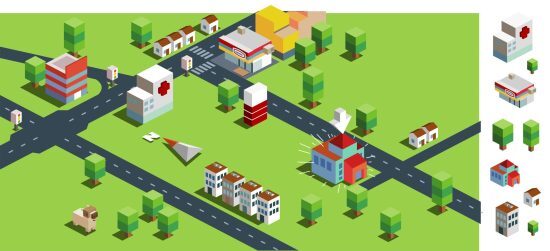What is a minimum viable product?

What is a minimum viable product, and why do you need it?
The 411 on MVPs
A minimum viable product (MVP) is a concept popularized by author Eric Ries in his classic book “Lean Startup: How Today’s Entrepreneurs Use Continuous Innovation to Create Radically Successful Products.”
The simple description of an MVP is that it’s a basic, working version of your product. It should capture the essence of your idea, and have only enough features to make it usable.
So, why would you only build a simple version of that great idea for an app you’ve had in your head for ages?
The unique advantages of building an MVP
At the most practical level, building an MVP can save you time, money, and resources while reducing your risk of failure and increasing your chances of success. It’s a great way to find out if the world is ready for your new idea.
So, how does this work? Rather than spending your funds on a highly complex project that may or may not be successful, you can build the simplest, usable version possible, and then test your product on real-world users.
As your real-world users interact with your MVP, you can observe their interactions and collect data about their behaviors. This data helps you determine whether more investment in your project is worthwhile, and what your next steps should be.
Your next steps could involve adding features to your product, pivoting in a new direction, or ending the project entirely. Either way, data and not guesswork will inform your choices.
The main elements of an MVP
An MVP should include only a few elements. Remember, you are creating a product that has only enough features to be usable. This is a very lean version of the app you’ve been dreaming about. Here are the main elements:
- Includes the fewest possible features while still being usable
- Captures the essence of your product / idea and conveys your unique value proposition (UVP)
- Tracks user behavior through data collection / analytics / key performance indicators (KPIs)
The main benefits of launching with an MVP
Launching with an MVP can put you in a stronger position as you build your business. Here are the main benefits of entering the market with an MVP:
- Invests less time, money, and resources
- Allows you to launch early and fast
- Reduces the risks associated with launching a new product
- Tests the market by observing and collecting data about user behavior
- Enables you to validate (or disprove) your assumptions, build new features, or pivot in a new direction
The process of building and launching an MVP helps you avoid the costs and risks associated with developing a full-blown (or over-engineered) product that is not a good match with the market.
You could look at it as a kind of trial balloon, used to determine how your product will be received. Once you measure and assess customer interactions with your new app, you will know whether it is worthwhile to take the next step.
In summary, an MVP protects you from wasting valuable resources by making poor decisions based on false assumptions. We are all susceptible to confirmation bias and human error. But there is no reason the products we build should reflect those traits.
Now that you’ve answered the question, “What is a minimum viable product?”, maybe it’s time to give it a try. At LimeTech, we’re happy to give you a hand with the mobile app development process.
LimeTech is a creative tech company with a focus on innovation and adaptive change. We use technical know-how, design skills, and deep experience in entrepreneurship to help companies advance their business goals. Our specialties include mobile app development, website design, technology planning, and remote work solutions.
Do you have a great idea for a mobile app? Get in touch today and find out how we can help.


























